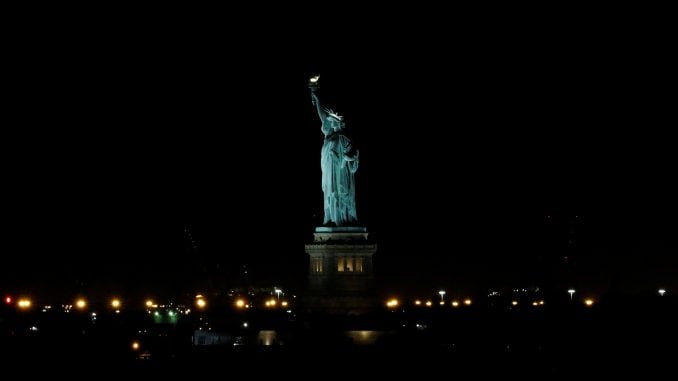
For the first six years in America, we lived as illegals, but I did not know it. My father kept the fear of deportation to himself. His visa was approved by a bureaucratic mistake that he did not bother to correct. In 1986, President Ronald Reagan offered amnesty through the Immigration Reform and Control Act, and we became legal. To mark this freedom from having a pathway to citizenship, we moved out of our roach-infested apartment east of Queens and into a house on Long Island where the American dream awaited us.On Wednesday evening I still remember, just two weeks in our new place we returned from midweek worship to graffiti all over our front door and garage, ugly black paint hissing, “Go back home Chink!” We were Koreans, not Chinese, but prejudice can’t see distinctions.I’ve heard that racist slur before, from lips of whites, blacks, browns, even yellows. Meanness has no color. But verbal slurs expire with the breath. Graffiti, however, has the permanence of ink. And it was seared on our home, a violation of our psyche, because anyone whose home has been robbed will tell you, the home and the sense of self occupy the same space.There have always been two contrary sides to America: not the red and blue of the political parties, but the ideal and the real. The ideal America is America as the Idea, the land of freedom, embodied in the Constitution, and a land of immigrants, captured in Emma Lazarus’s poem that gives voice to Statue of Liberty. The real America is that Idea compromised and tattered by politicking, factions and fears.The poet Frank Bidart writes, “Every serious work of art about America has the same / theme: America / is a great Idea: the reality leaves something to be desired.” Not just art, but history. The history of America is the story of the struggle between these two Americas. “All men are created equal,” but not poor men, or black men, or women. Send me the “wretched refuse of your teeming shore/ Send these, the homeless, tempest-tost to me,” but not if they are Irish, French, Germans, Chinese, Japanese, or Muslim.The struggle began from the start, with the construction of the Constitution, where though black slaves were not given citizenship, they were counted as three-fifths of a person for seats in the House of Representatives.John Adams, the second president, threatened the freedom he so courageously fought for when he signed the Alien and Sedition Acts of 1796, granting authority to imprison dissenters and denying immigration to “Wild Irishmen and the turbulent and disorderly of all the world, to come here with a basic view to distract our tranquillity.” Two southern states contested it. Jefferson and the Democratic-Republicans came to power and repealed much of it, but not all.The Alien Enemies Act remains with us today. It was codified in 1918 for World War I. President Franklin Roosevelt used it to justify the infamous Executive Order 9066 of 1942, which interned American citizens and legal residents simply for their Japanese ancestry. Its tragic anniversary was few days ago, Feb. 19.America as Idea seems to lose every time it comes up against America as Realpolitik. America as an experiment of freedom, a nation of beacon for all nations, is bullied by America as a nation unto itself. But America as that noble Idea of freedom for all doesn’t die, and like conscience, speaks without ceasing, because it is etched in its cornerstone, the Constitution. So our great reformer, Martin Luther King Jr., never called for a revolution, but a repentance, for America to turn from her hypocrisy and be faithful to her own self.In 1988, Reagan and the 100th Congress passed the Civil Liberties Act, where America repented for her “sin” in World War II, confessing that “a grave injustice was done to both citizens and permanent resident aliens of Japanese… without adequate security reasons and without any acts of espionage or sabotage documented by the Commission, and were motivated largely by racial prejudice, wartime hysteria, and a failure of political leadership.”Now, true repentance is when we turn from our sins so as not to repeat them.Samuel Son is a teaching pastor who lives and works in Raleigh.



